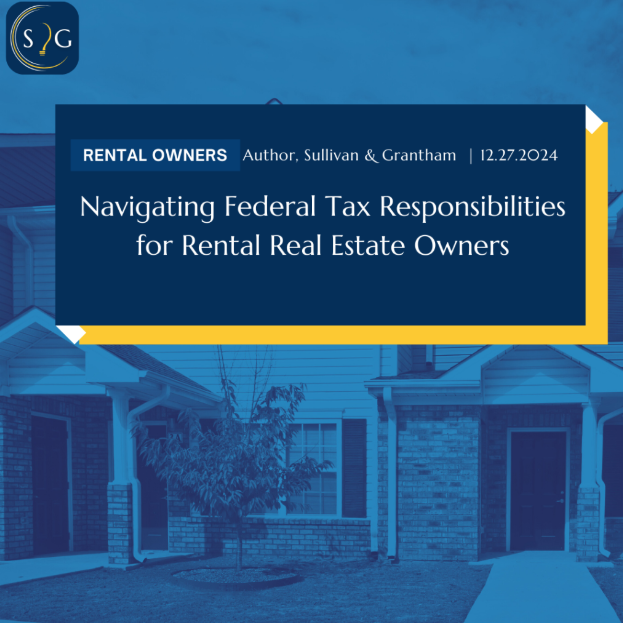
Owning rental real estate can be a lucrative investment, but understanding your federal tax responsibilities is crucial for managing finances effectively and ensuring compliance with IRS regulations. Here’s a detailed guide, with a special focus on key deductible expenses:
What is Rental Income? Rental income encompasses:
- Regular Rent Payments: Monthly or periodic payments from tenants.
- Advance Rent: Payments received before the rental period they cover.
- Security Deposits: If kept due to lease violations or used for final rent, they count as income.
- Lease Cancellation Payments: Money for canceling a lease.
- Expenses Paid by Tenants: Utilities or other bills paid by tenants, which you can deduct.
- Property or Services in Lieu of Rent: The fair market value of goods or services provided by tenants.
- Lease with Option to Buy: Payments under agreements with a purchase option.
If you only own part of a property, report only your portion of the income.
Deductible Expenses
Here’s a breakdown of some key deductible expenses:
- Mortgage Interest: Interest on loans used for purchasing or improving rental property is deductible. This can significantly reduce your taxable income.
- Property Taxes: Deductible as they are incurred, helping to lower your tax bill.
- Depreciation: Spreads the cost of the property over its useful life (27.5 years for residential property), offering a yearly deduction.
- Repairs: Unlike improvements, which must be capitalized, costs for repairs (e.g., fixing a leaky roof) can be deducted in the year they’re made, provided they maintain the property in its current state.
- Professional Fees: Attorney fees, accounting fees, or any professional services directly related to property management or legal advice for rental activities are deductible.
- Management Fees: If you hire a property management company, these fees are deductible. This includes any payment for managing tenants, maintenance, and other administrative tasks.
- HOA Fees: Homeowners association fees for common area maintenance or amenities can be deducted if they relate directly to the rental property.
- Auto Mileage: If you use your car for rental property management (like visiting the property for repairs or showing it to prospective tenants), you can deduct either actual expenses or use the standard mileage rate.
- Utilities: If you pay for utilities not covered by tenants, these costs can be deducted as part of your rental expenses.
Reporting Rental Income and Expenses
- How to Report: Use Schedule E (Form 1040 or 1040-SR) to report. Each property’s income and expenses are listed separately. If you have more than three properties, use additional Schedules E.
- Loss Limitations: If expenses exceed income, your deduction might be limited by passive activity loss rules. Forms 8582 and 6198 are crucial for navigating these limitations.
Record Keeping
- Why Keep Records?: Good records support your tax filings, help in audits, and track financial performance.
- What to Keep: Receipts for expenses, invoices, records of repairs, mileage logs, and any documentation proving the nature of your expenses.
Conclusion
Navigating the tax landscape for rental properties involves understanding what counts as income, what can be deducted, and maintaining meticulous records. Each of the highlighted expenses like repairs, professional fees, property taxes, management fees, mortgage interest, depreciation, HOA fees, auto mileage, and utilities play a significant role in reducing your taxable income. Consulting with a tax professional can provide personalized advice, ensuring you maximize deductions while staying compliant with federal tax laws.
Sullivan & Grantham is a cloud based professional services provider
specializing in cloud accounting.